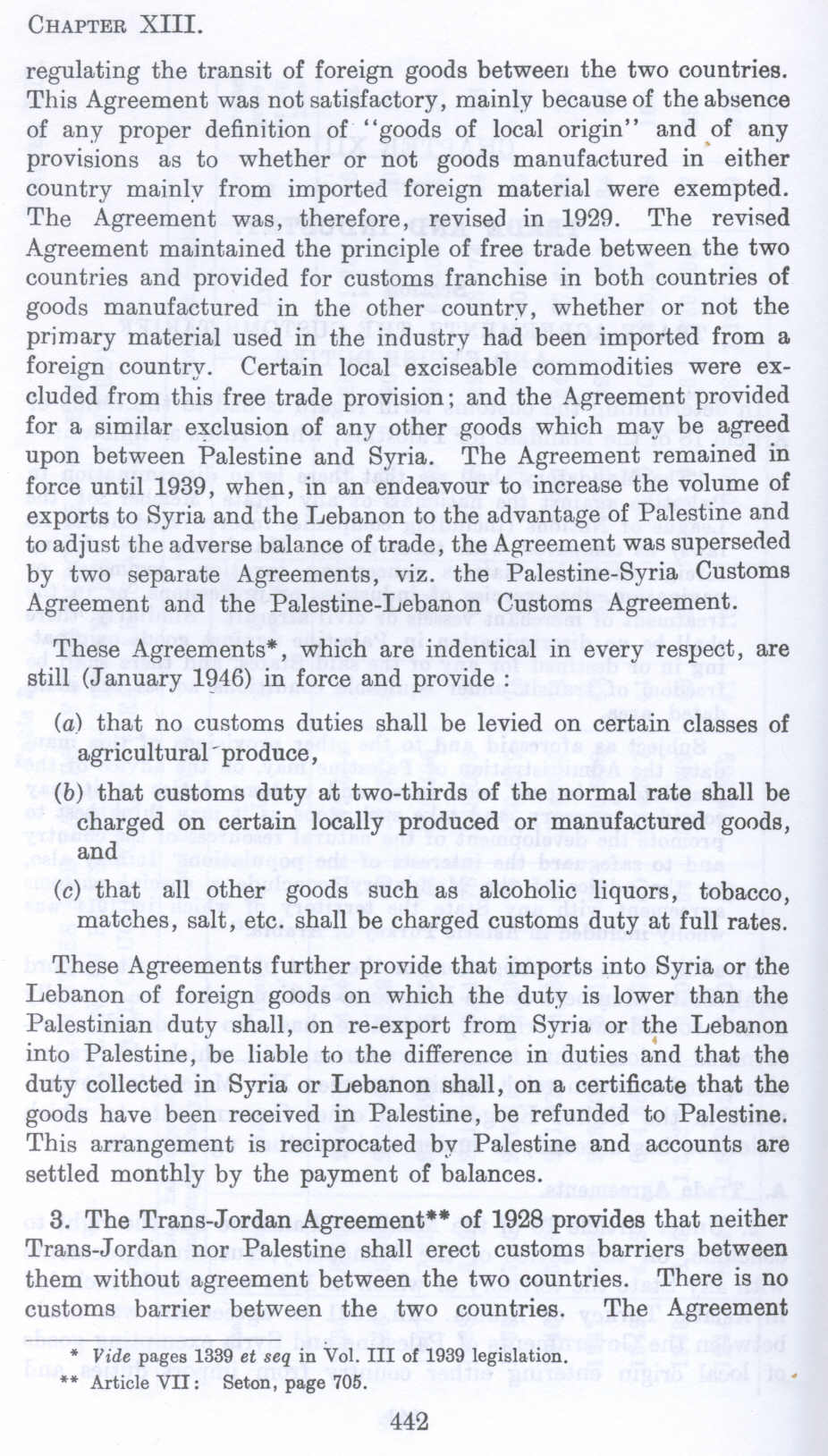| Prev | Next |  |
| Prev | Next |
| PalestineRemembered | About Us | Oral History | العربية | |
| Pictures | Zionist FAQs | Haavara | Maps | |
| Search |
| Camps |
| Districts |
| Acre |
| Baysan |
| Beersheba |
| Bethlehem |
| Gaza |
| Haifa |
| Hebron |
| Jaffa |
| Jericho |
| Jerusalem |
| Jinin |
| Nablus |
| Nazareth |
| Ramallah |
| al-Ramla |
| Safad |
| Tiberias |
| Tulkarm |
| Donate |
| Contact |
| Profile |
| Videos |
British Mandate: A Survey of Palestine: Volume I - Page 442 |
Disclaimer
The above documents, article, interviews, movies, podcasts, or stories reflects solely the research and opinions of its authors. PalestineRemembered.com makes its best effort to validate its contents.


Post Your Comment
*It should be NOTED that your email address won't be shared, and all communications between members will be routed via the website's mail server.
regulating the transit of foreign goods between the two countries. This Agreement was not satisfactory, mainly because of the absence of any proper definition of "goods of local origin" and .of any provisions as to whether or not goods manufactured in either country mainly from imported foreign material were exempted. The Agreement was, therefore, revised in 1929. The revised Agreement maintained the principle of free trade between the two countries and provided for customs franchise in both countries of goods manufactured in the other country, whether or not the primary material used in the industry had been imported from a foreign country. Certain local excisable commodities were excluded from this free trade provision; and the Agreement provided for a similar exclusion of any other goods which may be agreed upon between Palestine and Syria. The Agreement remained in force until 1939, when, in an endeavour to increase the volume of exports to Syria and the Lebanon to the advantage of Palestine and to adjust the adverse balance of trade, the Agreement was superseded by two separate Agreements, viz. the Palestine-Syria Customs Agreement and the Palestine-Lebanon Customs Agreement.
These Agreements", which are identical in every respect, are still (January 194.6) in force and provide :
(a) that no customs duties shall be levied on certain classes of agricultural "produce,
(b) that customs duty at two-thirds of the normal rate shall be charged on certain locally produced or manufactured goods, and
(c) that all other goods such as alcoholic liquors, tobacco, matches, salt, etc. shall be charged customs duty at full rates.
These Agreements further provide that imports into Syria or the Lebanon of foreign goods on which the duty is lower than the Palestinian duty shall, on re-export from Syria or the Lebanon into Palestine, be liable to the difference in duties a~d that the duty collected in Syria or Lebanon shall, on a certificate that the goods have been received in Palestine, be refunded to Palestine. This arrangement is reciprocated by Palestine and accounts are settled monthly by the payment of balances.
3. The Trans-Jordan Agreement** of 1928 provides that neither Trans-Jordan nor Palestine shall erect customs barriers between them without agreement between the two countries. There is no customs barrier between the two countries. The Agreement
____________________________________
* Vide pages 1339 et seq in Vol. III of 1939 legislation.
** Article VII: Seton, page 705.
Page 442